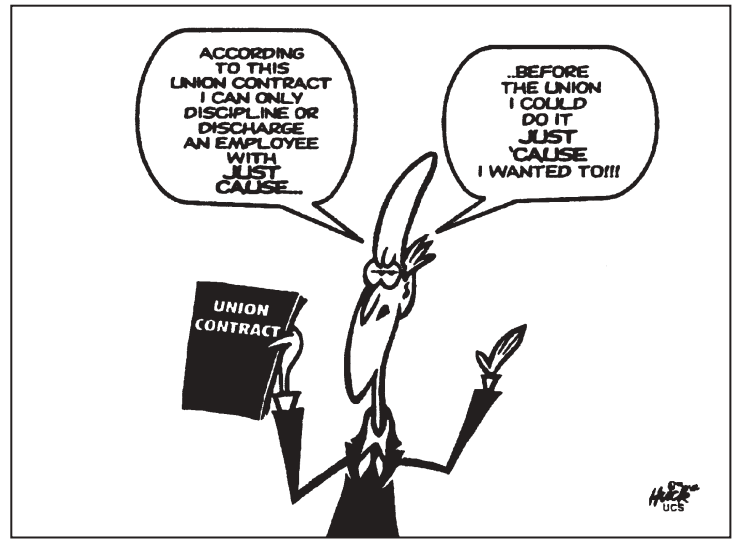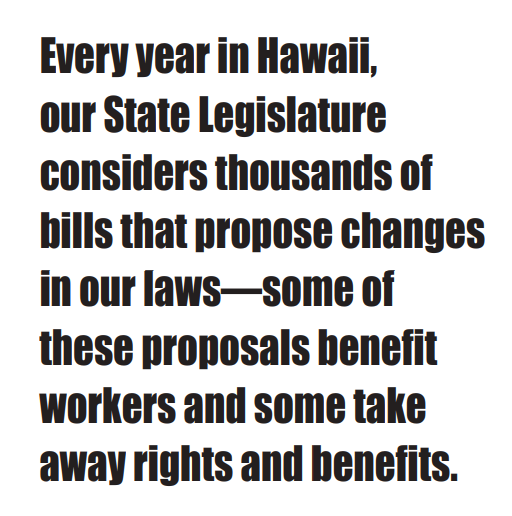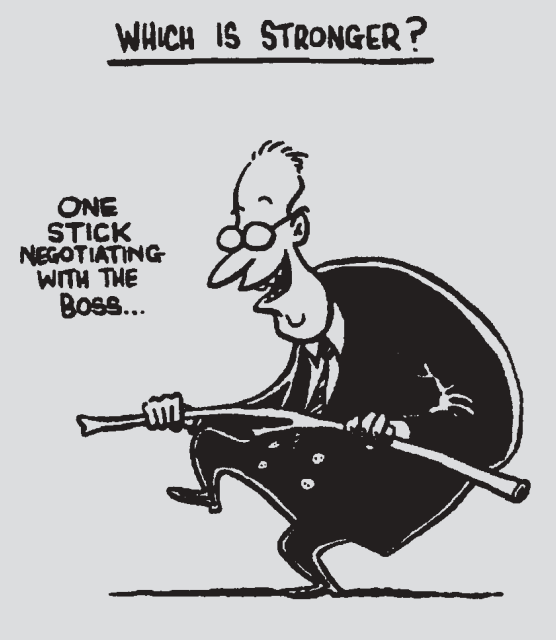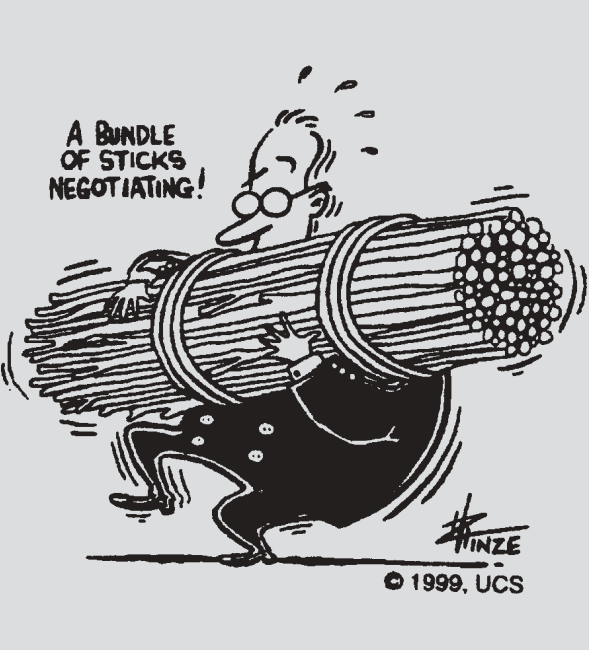
A third and very important benefit of union membership goes far beyond your job. You are now a member of a workers’ organization--dedicated to defend your interests as a worker and to promote the general welfare of you and your family.
This is spelled out in the ILWU Declaration of Principles:
We, the men and women working under the jurisdiction of ILWU Local 142 Hawaii, in order to build and maintain a strong local organization and provide for the defense of our common interests, promote the general welfare of our members, their families and other wage earners in the community, and uphold the rights and dignity of our labor and its organized expression, have determined that we shall be guided by the following principles . . .
One of the most important way the union defends our interests is through Union Political Action. The legal system is extremely important to working people. Laws can be passed to give additional rights and protection to workers or, just as easily, take away workers’ rights and protections. The story on page 3, “What Is At Will Employment?” clearly shows how laws affect your job security.

In our country, the U.S. Congress and our State Legislature have the power to make new laws and change old laws. Every year in Hawaii, our State Legislature considers thousands of bills that propose changes in our laws-- some of these proposals benefit workers and some take away rights and benefits. For this reason, the ILWU and other unions must be actively involved in the legislative process, monitoring all of the bills, stopping legislation that would hurt working families, and urging legislators to pass legislation that benefit workers.
The success or failure of union political action depends on numbers—it takes a majority of legislators to pass a piece of legislation. This is why the ILWU and other unions endorse certain candidates over others during the elections. In the last election in 2002, the ILWU Political Action Committee interviewed dozens of candidates and questioned them on issues important to workers.
Union members were then urged to vote for only those candidates who would support working families.
The scoop on . . .
Your Union Contract—what is it?
Your union contract is a written agreement with your employer. It defines your wages, benefits, conditions of employment, and rights on the job Your union contract is a written agreement with your employer. It defines your wages, benefits, conditions of employment, and rights on the job . It is enforceable through a grievance procedure and ultimately in a court of law.
Most union contracts are renegotiated every three years, although some contracts run for only one year and others run for as long as six years. How long the contract runs is up to you and your negotiating committee. The ILWU is a democratic union and members are involved in every step of the negotiation process.
Before the old contract expires, the union members at your company (which we call a Unit in the ILWU) will be asked for their input and ideas on what to change in the contract. This is usually done at a membership meeting, called by the officers of your Unit. This is one good reason why you should attend union meetings—it’s your chance to improve your union contract.
Your unit will also select a committee to represent them in negotiations with management. This committee is usually composed of your elected unit officers, but many units will expand the committee to make sure different parts of your unit are represented. A hotel unit, for example, might select a committee with members from different departments like housekeeping, food and beverage, maintenance, and front desk.
The Local or Division office will also assign a fulltime business agent or officer to work with your negotiating committee as your spokesperson. During negotiations, unit members may be asked to support their committee by wearing union buttons, attending rallies, and mobilizing in other activities.
When your committee thinks a fair settlement with management has been reached, they must get your vote of approval before the new contract can be finalized. This happens at a membership meeting where your committee will report on the settlement and where your unit members can vote to accept or reject the settlement. This is another part of ILWU democracy which requires membership approval for all contract settlements.
In rare cases, management may refuse to agree to a fair settlement and your committee may ask you to authorize a strike. Again, ILWU democracy requires membership approval for a strike.
Your union contract is a very important document. You should read the contract and be familiar with its terms. You should challenge management whenever they violate the contract. You can get a copy from your unit officers.


The VOICE of the ILWU welcomes letters, photographs and other submissions. Write to: Editor, VOICE of the ILWU, 451 Atkinson Drive Honolulu, HI 96814
